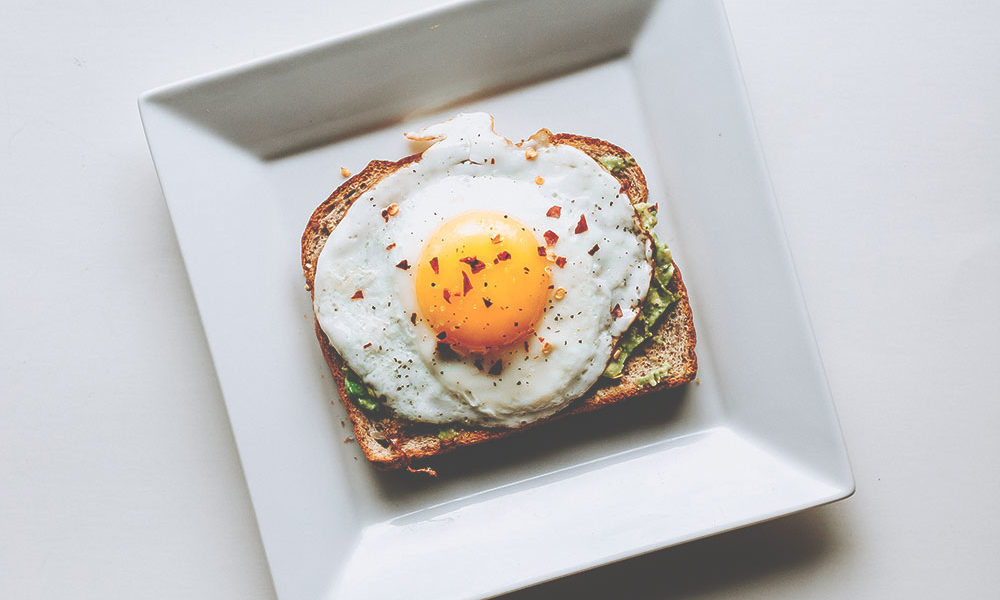Protein has become synonymous with ‘healthy’, but does it really deserve all that attention? Let’s break it all down and really get to know what it is.
BY: JESSICA KELLEY, MS, RD
Protein gets a lot of attention from the media, especially in the health and nutrition world. There’s no doubt about it, protein is an extremely important nutrient, but most are getting enough protein if eating a well-balanced diet.
So why does protein seem to get all the hype?
Basically, every cell in your body is made up of protein. This means your muscles, hair, skin, nails (and so much more) are all made up of protein. On top of the structural importance, protein also helps us feel full, giving us a sense of satiety at a meal. Compared to carbohydrates, protein takes longer to break down. This means eating protein can help keep you satisfied, helping curb your appetite and manage your cravings.
Let’s take a closer look at it, and answer some basic questions about what it is and know why it’s important.
First, what exactly is protein made up of?
As one of the three major macronutrients (carbs, fat, protein), protein is a macronutrient made up of amino acids. It’s made up of 20 amino acids that bind together in different ways to create the different types of protein.
Our bodies are amazing and can make 11 of the 20 amino acids. However, in order to function properly, we need to get the other 9 amino acids from protein in food. These 9 amino acids that our bodies can’t make are categorized as essential amino acids, and the additional 11 amino acids are considered non-essential because we can make them in-house.
So what are the different types of proteins?
Depending on what amino acids are in each protein, they can be categorized as complete or incomplete. Complete proteins contain all of the essential amino acids, whereas incomplete proteins do not, or contain too little of an amount to be significant. In general, complete proteins come from an animal source, with the exceptions of a few plant-based sources such as quinoa, buckwheat, soy, hemp and chia.
Examples of complete protein include:
- Animal protein: meat, fish, poultry, eggs, dairy
- Plant proteins: Soy (tofu, tempeh, soy milk, edamame), quinoa, buckwheat, hemp seeds, chia seeds
Examples of incomplete proteins are:
- Plant proteins: beans, legumes, nuts, seeds, grains (oats, rice, wheat, bulgur) and, to a lesser extent, some veggies and fruits
It used to be thought that incomplete proteins had to be eaten together at one meal to make a complete protein – aka: complementary protein pairing. While complementary proteins do exist, it’s important to remember it’s not necessary to eat them all at the same meal to get the nutritional benefit. Getting in a variety of plant-based proteins on a regular basis ensures that your body is collecting all the different proteins it needs.
Why is protein so important to our bodies?
Its main role is building, maintaining and repairing all of our muscles and tissues. Protein is considered the building blocks of life because we are essentially made out of different protein. It’s involved in every single cell of your body, and supports countless bodily functions including digestion, blood clotting, immunity and hormone production (such as thyroid hormones, insulin, and estrogen), and is the primary component of our hair, skin and nails.
Because protein plays such an important role in how our body functions, it’s especially critical for those on a vegetarian or vegan diet to be pay closer attention to it since it’s not as readily available through plant-based foods compared to animal sources. It’s also important to pay attention to your needs depending on activity levels and other life situations. For example, if you are an athlete, vegetarian or vegan, pregnant, or breastfeeding, your protein requirements will be greater.
So does this mean you need to go crazy on the protein-packed drinks and snack bars?
It’s definitely important to make a conscious effort to include protein at each of your meals, especially if you’re primarily on a plant-based diet. If you’re feeling sluggish or are constantly hungry with cravings, there’s a good chance you may not be getting enough protein through your food sources.
But don’t take this as a free-for-all in consuming the marketing hype of protein powders and bars! Getting them from a variety of whole food sources is still your best bet to get a balance of everything you need, without the dent in your wallet. Plus, this will help ensure you are meeting your protein needs through a more sustainable lifestyle.
Don’t blindly follow the protein hype, and be confident about the foods that help you feel your best.
Adapted from the original article.
HEADER IMAGE: BEN KOLDE
Jessica Kelley, MS, RD is a Registered Dietitian based in St. Louis, MO. She promotes a healthy lifestyle that focuses on wholesome, natural ingredients to fuel our everyday lives to lay the foundation for balance without obsessing over numbers or fad diets. Read more from Jessica at Nourished by Nutrition.

